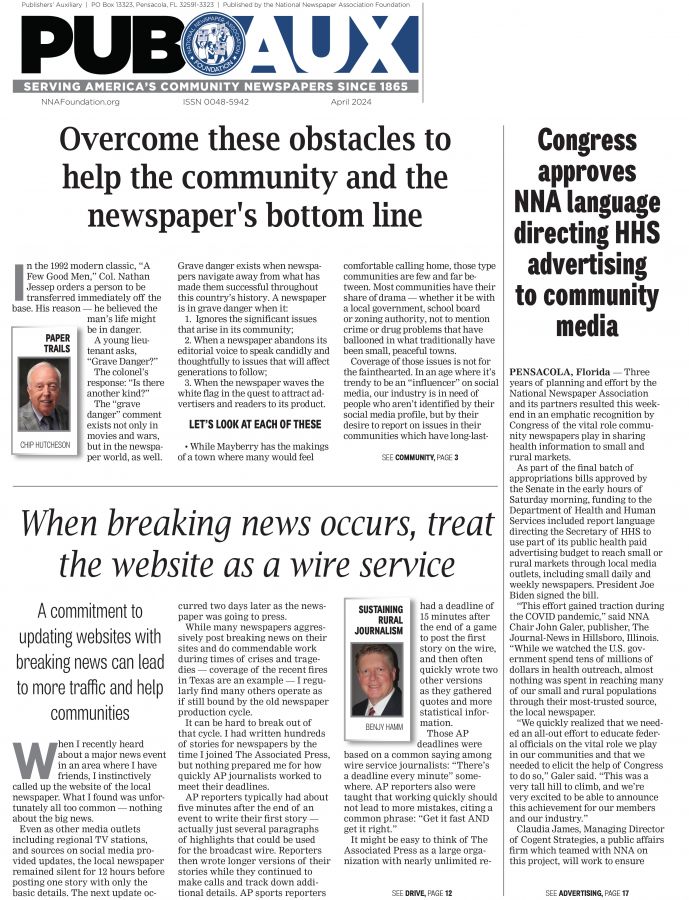First Amendment freedoms cast in leading role in 2014
Dec 30, 2014
By Gene Policinski
Inside the First Amendment
Who knew the 45 words of the First Amendment came with buttered popcorn?
Entering 2014, it's safe to say that none of us could have envisioned that one of the year's biggest global collisions between freedom of expression and tyrannical suppression of speech would revolve around a lightweight movie comedy, "The Interview."
What lessons does "The Interview" have for all of us: Well, as if we didn't know before, it's pretty clear that North Korea leader Kim Jong Un has NO sense of humor. More importantly the rest of the world learned how much Americans value free speech, and that free speech — whether from unknown bloggers or Hollywood stars or the President of the United States — can have real and immediate impact.
Consider the progression: North Korean hackers (so says the FBI) bully Sony Pictures into delaying or cancelling release of the movie. Americans speak out, outraged at this cowardly attempt by a despotic nation to limit free expression. Sony Pictures, imbued with the glow of public support, gives the movie wider distribution than planned.
The entire incident would be a laughing matter — except that it's not. Not when terrorist attacks are threatened, criminals hack into the private files of a major company, and the personal data and e-mails of studio chiefs and working folks are strewn about the Internet for all to see — with threats of more to come.
This ultimate reality show joined other extraordinary challenges this year to our core freedoms.
Just last August the Middle Eastern thugs who call themselves ISIS burst into global politics via uploaded Web videos showing journalists James Foley and Steven Sotloff, and captured aid workers, being beheaded. The worldwide outcry focused even more attention on the always dangerous mission of bringing news from war-torn zones such as Syria, the Ukraine, the Middle East, and anywhere an unfettered news media is an enemy to tyrants, gangsters and terrorists.
Russian authorities continued to extinguish independent news media that once flourished in the aftermath of the Soviet Union, while President Vladimir Putin deployed a sophisticated system of misinformation and propaganda in trying to rebuild his nation as a world power reminiscent of the Cold War.
At home, Congress failed to enact two major legislative initiatives, one upgrading the Freedom of Information Act; and a second that would have created a limited federal "shield law" allowing journalists in many cases to protect the identity of confidential sources.
In the U.S. Supreme Court, the justices finished their 2013 term by ruling in favor of First Amendment principles in the majority of the ten First Amendment-related cases it considered — and continued a trend of narrow holdings and exceptions for national security, and decisions supporting certain free-speech rights for corporations.
Once again, it was in the court of public opinion where First Amendment freedoms found their greatest use and loudest voice. From Ferguson, Mo., to New York City to most major cities in the U.S., protesters using their rights of free speech, assembly and petition challenged authorities — and public attitudes on race — as a result of the deaths of black youths at the hands of police.
Yes, some demonstrations turned violent — and in New York City, a mentally disturbed man used those deaths as an excuse to ambush two NYPD officers, a classic and tragic example of Gandhi's admonition that "an eye for an eye will leave everyone blind." But the focus on racial issues has revived a national conversation not heard as loudly in nearly 50 years.
We'll enter the New Year without a leading voice for free expression, American author and poet Maya Angelou, who died on June 19. But we can keep in mind her thought about what's ahead: "History, despite its wrenching pain, cannot be unlived, but if faced with courage, need not be lived again."
As a nation, we may disagree over the nature and purpose of the continued street protests — but compare that history with the shutdown of the so-called "Umbrella Revolution" in Hong Kong, where after 75 days of marches and protests, police crackdowns and hundreds of arrests have blunted the movement — at least for now.
At the core of the global discord over what we call First Amendment freedoms is a basic clash of values: On one side, rigid regime control of words and images in the name of safety and security, combined with a fear that any deviation is a threat. On the other, the ideal that controversy, dissent and discord are the best method and means of sifting through alternatives and selecting the best course for the future.
We will have much to talk about in 2015 when it comes to First Amendment issues. But at least we'll be able to talk about it freely — and occasionally even buy a movie ticket in support.
Gene Policinski is chief operating officer of the Newseum Institute and senior vice president of the Institute’s First Amendment Center. He can be reached at gpolicinski@newseum.org.







